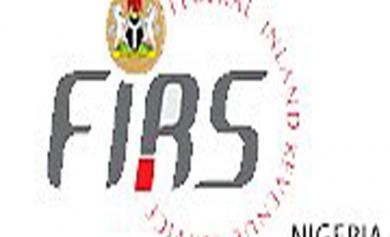
The Federal Inland Revenue Service (FIRS) has explained how the Unique Taxpayer Identification Number (U-TIN) could shore up states’ revenue.
Giving explanation on this, the chairman, FIRS, Ifueko Omoigui-Okauru, said the U-TIN project, which had begun in six pilot states, would contain tax shopping, block leakages and enable states to match tax data provided by individuals and corporate tax payers.
Based on cutting edge technology and harnessing of data multifaceted data using the most modern Information Communication Technology, tools, the U-TIN Project, according to
Omoigui-Okauru, would give Federal, State and Local Governments real time data about corporate and individual tax payers in the country.
The U-TIN project, being overseen by the Joint Tax Board and funded by FG/ States, she said, was an electronic system of tax identification, which assigns unique identifier to every taxable person in Nigeria.
According to a statement issued by FIRS yesterday in Abuja, Okauru was speaking in Benin, Edo State.
The statement stated that the project equally includes the development of national tax database which links all revenue authorities and major stakeholders.
The project, which could herald a new tax regime in the country, would put more money in the pockets of federal, states and local governments to realise their goals.
Omoigui-Okauru told the audience at the Emporium, venue of the one-day Edo Technology Day, that the U-TIN Project would link federal, states and local governments, with all stakeholders in the project.
This, she added, will ease real time information sharing and data exchange among these stakeholders.
Some of stakeholders are: Nigeria Immigration Service, National Bureau of Statistics (NBS), Federal Road Safety Commission (FRSC), National Population Commission (NPC),
Banks/Central Banks of Nigeria, National Security Adviser (NSA), Nigeria Customs Service (NCS), Nigeria Governors’ Forum, Association of Local Governments of Nigeria, National
Assembly, Nigeria Identity Management Commission (NIMC), Corporate Affairs Commission (CAC), Economic and Financial Crimes Commission (EFCC)/ Nigeria Financial Intelligence Unit (NFIU), Bureau of Public Procurement (BPP), Economic Adviser to President, Budget Office of the Federation, Ministry of Finance and several others.
Already, the FIRS has established transmission of live data with Nigeria Customs Service and Corporate Affairs Commission.
The embrace between the Nigeria Customs Service and the FIRS gives the FIRS real time basic information on all importers and exporters, and it is expected that the U-TIN project would give all states access to necessary tax and business data on all personal income and corporate taxpayers in all states of the federation and the FIRS.
This would plug leakages, curb tax evasion and substantially contain tax shopping, which is in vogue in Nigeria today.
The FIRS boss further explained that under the U-TIN project, which had been approved by the National Economic Council (NEC), (consisting of all state governors), over 215 Joint Tax Board staff had been trained and 370 desktops installed.
Other steps towards the realisation of the project include procurement of 185 static biometric registration equipment and 108 (3 per senatorial zone per state) mobile registration equipment as well as 37 Midrange Servers.
The FIRS chairman highlighted other steps to include, improved processes and supportive software, 37 oracle standard edition databases in the 37 tax authorities, SIGTAS registration application in each of the 37 revenue authorities and JTB, platform for automation of the entire tax administration in FIRS and states, transforming and modernising tax registration processes in the 37 tax authorities as well as revised organisation structures and staffing.
She also listed other ICT infrastructure and steps that would ease the U-TIN project communications infrastructure to include: VSAT in 39 locations with internet linkage, a modern JTB centre in Abuja with 11 high-end servers,
national tax contact management centre, disaster recovery centre in Lagos, change management for an automated environment, Media campaign supporting all revenue authorities for improved revenue generation, institutionalisation of minimum ICT standards for revenue administration and better collaboration amongst revenue authorities and stakeholders.
She observed that ICT projects had enhanced the ability of the FIRS to deliver customer friendly and efficient services to taxpayers.
Some of the gains of the Service from its embrace of ICT, she said include, FIRS website, FIRS tax portal, FIRS data centre, automated payment process, automated payroll, training, retraining, change in mindset,
attitude and approach towards ICT (over 4,000 staff trained) procurement of over 4,600 systems, registration of over 700,000 taxpayers -from less than 100,000- and increase in tax collection from N1.194 trillion in 2004 to N2.972 trillion in 2008 and N2.839 trillion in 2010.
She noted that this was an increment of between 237 percent and 248 percent.
?

